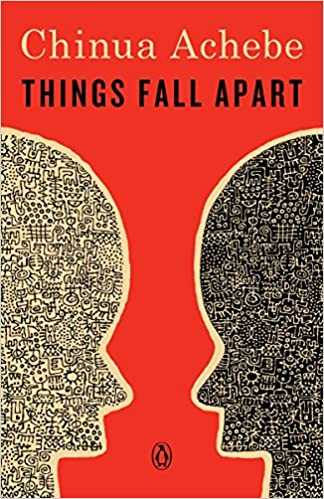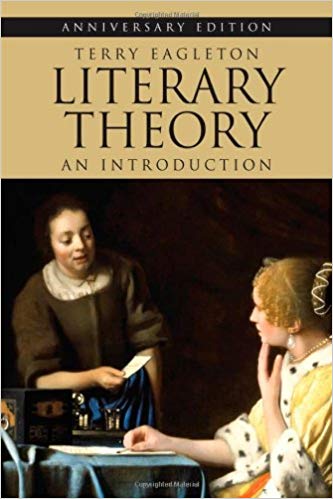ENGL 5810. 001
T, TR: 2:00-3:20 PM
Lang 315
Office: AUD 106
Office Hours: T, TR 10: 12:00 (And by appointment)
Comtact: mraja@unt.edu
Introduction:
This course aims to introduce you to the major critical approaches available for analysis and appreciation of literary works. The terms theory and literature themselves are not free of controversy and have been defined in numerous, often conflicting, ways. This course will apprise you of the major debates in the field of literary theory and their impact on the critical reading of literature in particular and the real-life culture in general.
We will also discuss the politics and poetics that constitute what we perceive as literary and the role of the academy and popular culture in defining and refuting any hard boundries. In today’s world, literary theory is increasingly in constant embrace with the culture, and this course will take into account the overlaps and the disjunctures between the critical and the cultural theory.
Discussed also will be the role of literature in defining or articulating the world around us, and, in certain cases, the role of literature in normalizing the hegemonic drive of the powerful. Such an approach to literary theory will make us question our own privileged place in the university setting and in the world and help us articulate personal goals of becoming politically aware and culturally diverse world citizens. Throughout this course, we will attempt to relate our in-class activities to the world of the lived experience beyond the university campus.
This is a demanding and writing-extensive course, so please come prepared for a challenging and mentally stimulating experience.
Required Texts:
The Norton Anthology of Literary Theory and Criticism
Eagleton, Terry. Literary Theory: An Introduction, 2nd Edition.
Handouts:
Videos:
Course Policies and Requirements:
You are expected to come prepared for class: This involves reading the assigned texts, listening carefully to your peers, and contributing your views in a collegiate and stimulating way. Attendance is mandatory.
Distribution of Points:
Discussion Leader 200 Points
Respondent 100 Points
Class Participation 100 Points
Mid Term exam 300 Points
Term Paper 300 Points
Total 1000 Points
YOU MUST FINISH ALL MAJOR ASSIGNMENTS TO PASS THE COURSE
Discussion Leader: (200 Points)
Each one of you will be asked to lead discussions on assigned readings on rotation basis. The rotation will be decided in an alphabetic order.Your role as discussion leader will involve the following:
- An oral presentation covering the assigned text in detail. (100 Points).
- A written response (minimum two double-spaced pages) submitted on the same day. (100 Points).
I will calculate your final grade in this assignment by taking the average score on your performance throughout the course.
Discussion Respondent: (100 Points)
For all discussion leadership assgnments, I will also assign one of you (in reverse alphabetical order) the role of responding to the discussion leader. It will be up to you to contact your corresponding discussion leader, get a copy of their plan/notes and then develop a response to that for presentation during class. The respondent role will be graded in a fashion similar to that of the discussion leader role.
Mid-Term Exam: (300 Points)
Masters: The Mid-term will be an in-class essay exam administered in the 8th week.
PhD: Proof of submission for a book review to a refereed journal.
Class Participation: (100 Points)As this is a seminar based on a discussion format, your thoughtful participation is essential to the success of the class. I encourage collegiate, open, and thought-provoking class discussions. Remember, we are all here to learn, so let us share our ideas and knowledge to make this class into a dynamic learning experience.
Term Paper: (Guide) (300 Points)
The final term paper will be due on the last day of class. The paper should be 12-15 pages, with a clearly defined thesis and a coherent argument using one or two of the theoretical apporaches discussed in class. I would encourage you to choose your topic early and do extensive research. I will be available to assist during all stages of your research and composition process.
Attendance:
You are expected to attend the class regularly. You will be in the danger of failing the course if you miss more than TWO class sessions.
Cheating and Plagiarism:
Checke the policy HERE.
ADA Please contact me and bring me the necessary documentation if you would like me to make extra arrangements of for any disabilities.
Grading Scale:
A 920-1000
B 830-919
C 739-829
D 600-738
F Less than 600 Points
Weekly Schedule:
(Note: This is a tentative schedule and the istructor retains the right to change it as and when necessary)
Week 1
Introduction to the course
Eagleton: Intro and Chapter 1
Reading:
Eagleton: Chapter 2
Arnold “Functions of ” (695), Ransom (961), Brooks (1213), Wimsatt (1217), Frye (1301);
Discussion Leaders: Keith (Arnold)
Respondents: Iqra (Arnold)
Week 2
Discussion:
Eagleton: Chapter 2
Brooks (1213), Wismatt (1217), Ransom (961), Frye (1301); Arnold
Reading:
Eagleton Chapter 3
Saussure (Whole selection 845); Jakobson (Whole Selection 1141)
Discussion Leaders:Irene (Sassure)
Respondents: Daniel (Sassure)
Week 3
Discussion:
Eagleton Chapter 3
Saussure (Whole selection 845); Jakobson (Whole Selection 1141)
Reading:
Eagleton, Chapter 4
Althusser (1332); Barthes (1316);Foucault (1469) Derrida (1680)
Discussion Leaders: Michael (Althusser)
Respondents: Michael Young (Althusser)
Week 4
Discussion:
Eagleton, Chapter 4
Althusser (1332); Barthes (1316);Foucault (1469) Derrida (1680)
Reading:
Eagleton, Chapter 5
Freud (807); Lacan (1156); Butler (2536); Kristeva (2067); Cixous (1938); Zizek (2402)
Discussion Leaders: William (Frued)
Respondents: Derrick (Frued)
Week 5
Discussion:
Eagleton, Chapter 5
Freud (807); Lacan (1156); Butler (2536); Kristeva (2067); Cixous (1938); Zizek (2402)
Reading:
Eagleton, Conclusion and Afterword
Marx (647); Derrida “Specters of Marx (1734); Horkheimer and Adorno (1107)
Discussion Leaders: Takuya (Derrida . . . Specters)
Respondents: Christa (Derrida Specters)
Week 6
Discussion:
Eagleton, Conclusion and Afterword
Marx (647); Derrida “Specters of Marx (1734); Horkheimer and Adorno (1107)
Reading:
Said (1861); Spivak (2110); Bhabha (2351); Gates Jr (2427); Hooks (2507)
Discussion Leaders: Virginia (Said)
Respondents: Mohammed (Said)
Week 7
Revision of all redings covered so far
Week 8
Mid Term
Reading:
Achebe (1610); Anderson (1913); Fanon (1437); Hardt and Negri (2615)
Discussion Leaders: Iqra (Fanon)
Respondents: Keith (Fanon)
Week 9
Discussion:
Achebe (1610); Anderson (1913); Fanon (1437); Hardt and Negri (2615)
Reading:
Habermas (entire selection)
Discussion Leaders: Daniel (Anderson)
Respondents: Irene (Anderson)
Week 10
Discussion
Habermas and General Discussion
Reading:
Mark Bracher (Handout)
Discussion Leaders: Derrick (Hardt and Negri); Michael Young (Bracher)
Respondents: William (Hardt and Negri); Michael (Bracher)
Week 11
Discussion:
Reading:
Anzaldua (2096); Rich (1588); Rubin (2373); Sedgwick (2464)
Discussion Leaders:
Respondents:
Week 12
Discussion:
Anzaldua (2096); Rich (1588); Rubin (2373); Sedgwick (2464)
Reading:
Smith (2221); Zimmerman (2328); Halberstam (2635); Huffer (Handout)
Discussion Leaders: Krista (Anzaldua); Mohammad (Huffer)
Respondents: Takuya (Anzauld); Virginia (Huffer)
Week 13
Discussion:
Smith (2221); Zimmerman (2328); Halberstam (2635); Huffer (Handout)
Assignment:
Final Paper Workshops
Week 14 & 15
Revision and Paper workshops.



Leave A Comment